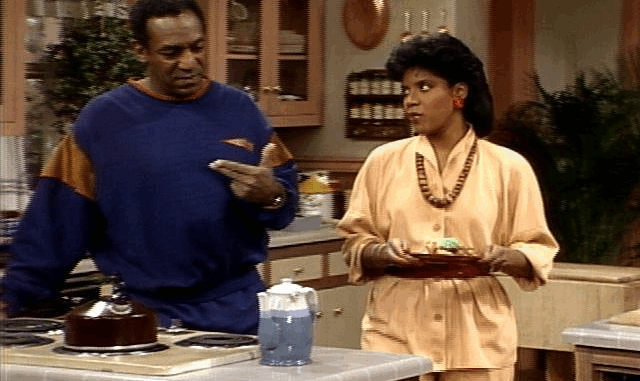
Before The Cosby Show, the image of Black parenthood on television was often filtered through the lens of struggle, stereotypes, or side characters. Then came the Huxtables—an upper-middle-class Black family living in a Brooklyn brownstone—who didn’t just change the narrative; they rewrote it completely.
With intelligence, humor, and heart, The Cosby Show gave the world a new vision of what Black parenthood looked like—and in doing so, made television history.
From Survival to Success: A Narrative Shift
In the decades leading up to the 1980s, most portrayals of Black families on TV leaned heavily into either poverty, crime, or one-dimensional humor. Shows like Good Times and Sanford and Son made important strides in representation, but they often focused on survival, not success.
The Cosby Show flipped that script. Cliff and Clair Huxtable weren’t just good parents—they were professionals, intellectuals, and pillars of their community. He was an OB-GYN; she was a high-powered attorney. Together, they raised five kids with high expectations, strong values, and deep cultural pride.
This wasn’t just groundbreaking—it was revolutionary.
Clair and Cliff: A Parenting Power Duo
Cliff Huxtable was not the typical sitcom dad. He wasn’t bumbling, emotionally distant, or stern. He was involved, humorous, and emotionally available. He danced in the living room, gave awkward sex talks, and playfully outwitted his kids with life lessons disguised as jokes.
Clair Huxtable, equally iconic, was far from the stereotypical stay-at-home mom. She was razor-sharp, assertive, and compassionate. She didn’t just support her husband—she challenged him. She didn’t just raise her kids—she empowered them.
Together, they modeled a kind of parental partnership that was aspirational, not only for Black families, but for all families watching.
The Impact Beyond the Screen
Representation matters—and for millions of Black children watching The Cosby Show, seeing successful, loving parents who looked like them was life-changing. The Huxtables showed that being Black and being excellent weren’t mutually exclusive. They shattered the myth that stability, sophistication, and ambition were somehow “not relatable” to Black households.
Educators, sociologists, and media critics have long acknowledged the ripple effects the show had on perceptions of race, class, and family. It helped broaden public understanding of the diversity within the Black community. It inspired generations of students to pursue higher education and careers in law, medicine, and the arts.
A Blueprint for Future Sitcoms
The influence of the Huxtables can be seen in every family sitcom that came after—from Family Matters and My Wife and Kids to Black-ish and This Is Us. These shows built on the foundation The Cosby Show laid: that Black families are not monolithic, and that their stories deserve to be told with dignity, humor, and nuance.
By presenting parenthood as both a joyful and serious endeavor, the show also raised the bar for how television depicted fathers and mothers, period.
Final Thoughts
The Cosby Show didn’t just entertain—it enlightened. It challenged the world to rethink outdated narratives and to see Black parenthood not as a struggle, but as a celebration of love, structure, intellect, and resilience.
In doing so, it redefined more than television—it redefined possibility.